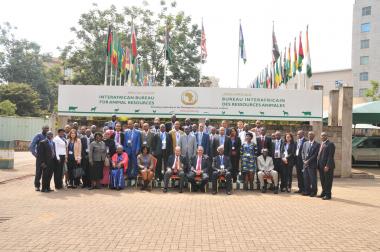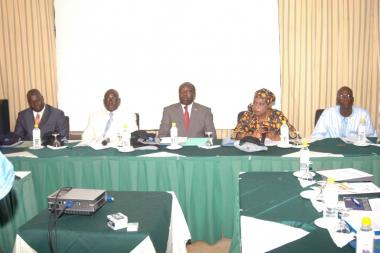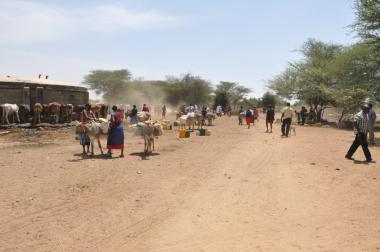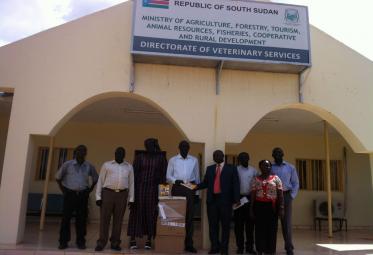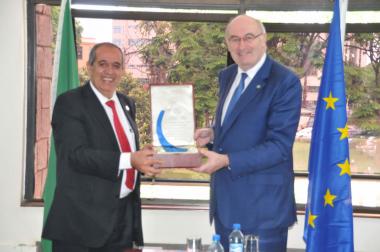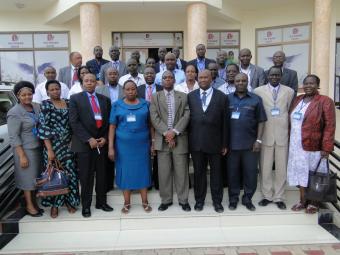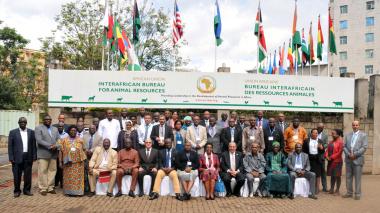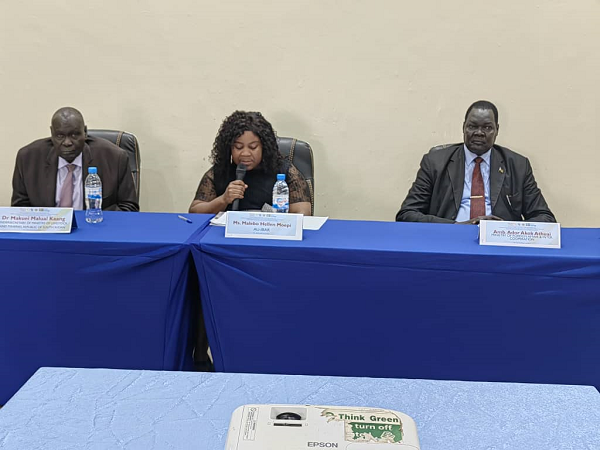
With the goal of identifying priority issues and actions for domesticating relevant Global Instruments on conservation of aquatic biodiversity, climate change mitigation, and environmental management, the AU-IBAR and the Republic of South Sudan hosted a consultative workshop in Juba, South Sudan, on the 24th and 25th of April 2023.
Ambassador Ador Akok Athuai of South Sudan's Ministry of Foreign Affairs and International Cooperation opened the meeting by thanking AU-IBAR for including South Sudan in its Member State support to domesticate relevant Global Instruments related to aquatic biodiversity conservation and environmental management.
On behalf of the Ag. Director of AU-IBAR, Dr. Nick Nwankpa, Mrs. Hellen Moepi-Guebama welcomed workshop attendees and shared her optimism that the Republic of South Sudan would be able to implement the recommendations from the consultancy assignment carried out as part of the Aquatic Biodiversity Project, thereby enhancing the country's ability to protect its biodiversity.
Dr. Makuei Malual Kaang, Undersecretary of the Ministry of Livestock and Fisheries, spoke in Hon. Onyoti Adigo Nyikwec's stead, the Minister of Livestock and Fisheries of the Republic of South Sudan. He reemphasized South Sudan's abundant aquatic resources and the country's potential for blue economy development, and he detailed the measures that need to be implemented to preserve these assets for future generations. He praised AU-IBAR for their help in developing South Sudan's blue economy and invited everyone at the workshop to participate fully in the talks aimed at bringing the relevant global instruments for protecting aquatic biodiversity and ensuring environmentally sound practises into South Sudan. He then formally began the meeting and wished everyone present productive discussions.
The national consultative workshop's overarching goal was to help the Republic of South Sudan review its national policies and regulatory frameworks pertaining to the blue economy, the conservation of aquatic biodiversity, the mitigation of climate change, and the management of the environment, and to align or domesticate these policies and frameworks with the relevant regional, continental, and global biodiversity and environmental instruments.

At the national consultative workshop, 31 people took part, which included representatives from: Ministry of Livestock and Fisheries; Ministry of Environment and Forestry; Ministry of Water Resources and Irrigation; Private Sector – President of AWFISHNET South Sudan Chapter; Ministry of Transport; Petroleum Authority; Ministry of Wild Life Conservation and Tourism; Ministry of Foreign Affair & International Cooperation; Ministry of Dams and Energy; Ministry of Petroleum; University of Juba; Ministry of Agriculture and Food Security; Individual Consultant and AU-IBAR Technical and Administrative staff.
Multiple outcomes were accomplished by the end of the meeting. Notably: relevant National Regulatory framework and Policy related documents in the various Ministries, Departments, and Agencies (MDAs) responsible for environmental management and aquatic biodiversity conservation were identified; including the gaps in the National Instruments based on the provisions of the Global Instruments report on conservation of aquatic biodiversity and environmental management.
The African Blue Economy Strategy and worldwide instruments for safeguarding aquatic ecosystems and controlling environmental impacts were presented at this interactive and participatory event. Participants divided into three groups to synthesise existing policy or regulatory instruments on blue economy sectors in South Sudan and to identify issues, gaps, challenges, and priority actions for domesticating global instruments related to the conservation of aquatic biodiversity and environmental management in shared freshwater ecosystems.
AU-IBAR, with funding from the Swedish International Development Cooperation Agency (SIDA), organised the event as part of the "Conserving Aquatic Biodiversity in African Blue Economy" Project. The goal of this project is to improve the ability of African Union Member States and Regional Institutions to safeguard aquatic biodiversity as part of the Africa Blue Economy Strategy.

